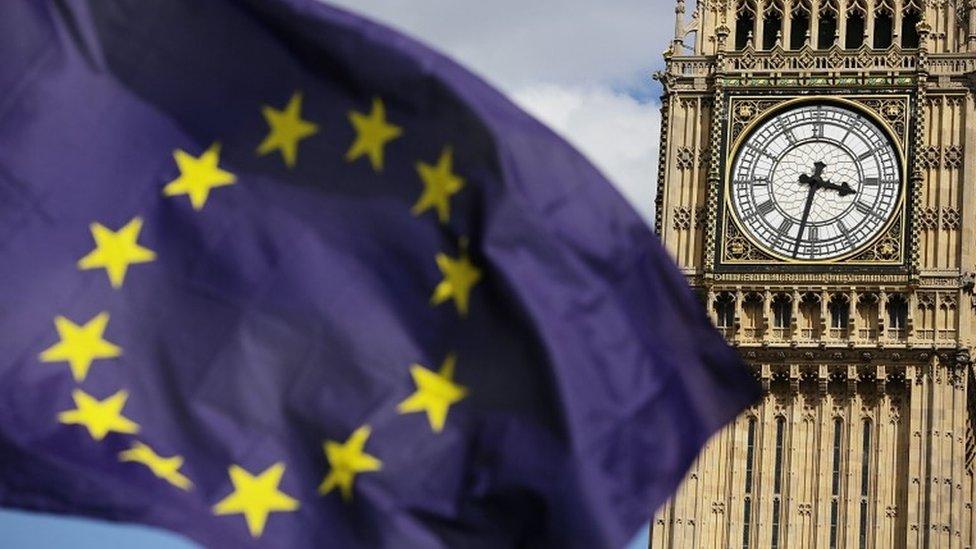Brexit hard yards still to come
- Published

It sailed through.
For the first time, MPs have agreed in a vote that we will begin the process of leaving the EU by the end of March.
The government chief whip was seen with a massive grin after tonight's vote.
Remember ministers' climbdown came with a clever kicker, persuading Labour to sign up to their timetable for triggering Article 50 without committing to very much in return - the vague promise of a plan that could be as detailed as the back of the proverbial fag packet.
There's grumpiness on the Labour benches at how it was handled - angry conversations taking place, sources suggest - a sense among some that the front bench allowed themselves to be hoodwinked by the government's cunning plan.
Compromise ahead
Potential Tory rebels on the Remain side are deeply suspicious of the government's real intentions for giving more information about its ideas for Brexit. They backed off today, but will be back for more, no question.
But beyond the immediate machinations and the chief whip's big grin, two realities are confirmed by the events of the last 24 hours.
Yes - the numbers tonight suggest not very many MPs will actually try to block Brexit, or frustrate the process. They will certainly try to push the government for more details. They will certainly try to amend the proposals that eventually make it to the Commons, whenever that is. That could disrupt and delay things, but trying to stop it happening is not on the agenda of the vast majority.
But what's equally clear is that Theresa May does not have a secure majority on the EU. As soon as her plans (eventually) hit the floor of the House, she's likely to have to compromise.
That is precisely why the government is fighting so hard just across the road in the Supreme Court to try to avoid MPs having a say before the really hard work in Brussels even begins.